- Home
- Jack Higgins
Dark Justice Page 11
Dark Justice Read online
Page 11
“Could I have a drink, Mr. Dillon? I’m that kind of Muslim.”
Dillon found a bottle of Scotch in the bar box and two glasses and poured. Sharif drank it down. He held the glass out and Dillon poured another.
Sharif said, “I was a Republican Guard and military intelligence under Saddam, because we all have to get by in life, which means I was a bad boy. But then I lost my wife and my daughter in the bombing, and that was the war, so fuck Saddam and fuck all of you, the Americans, the Brits and now the Russians, for ruining my country.”
“I appreciate the point.” Dillon toasted him. “As it happens, I’m Irish – IRA Irish, so I can be your worst nightmare. With the credentials I’ve got, I could turn you in to the Yanks, and I’m sure they’d like to have you.”
“And the alternative?”
“Work with us and I’ll guarantee that Ferguson will pay you as agreed and give you a clean slate. Mind you, he’ll expect you to continue working for him.”
Sharif was astounded. “Can this be true?”
He turned to Billy, who shrugged. “Don’t look at me. I just kill people when he tells me to.”
“The world’s gone crazy.”
“So they tell me,” Dillon said. “Are you in or out?”
“I’m in.”
“Good man. Now tell me what happened between you and her.”
Sharif did, and Billy said, “Zorin and Makeev sound like trouble.”
“That’s why I have you, Billy.” Dillon went to the quartermaster’s hardware bag, took out a file, opened it and selected a computer printout. “Does this look familiar?”
Sharif looked surprised. “Why, that’s Ramalla, and that’s the Selim farm just outside in the orange grove by the river. It was damaged in the war, but the old man still lives there on his own. Women relatives call in to see to his needs, so my contact informs me.”
Dillon went back to the bag and opened a false bottom that contained ten thousand American dollars operating money. He took out two thousand in fifties and handed it over.
“That’s to be going on with.”
Sharif looked astonished, but stashed the money away. “What can I say?”
“How long to Ramalla?”
“It’s forty kilometers, an hour, could be less. You want me to take you?”
“No, I have a driver who knows his way around. What I want you to do is check with your contact and call me on my mobile the moment you hear Selim’s arrived. We’ll be ready and waiting to go.”
“And Novikova?”
“Call her half an hour later. Billy and I will be a nice surprise for her and her friends when they turn up.”
“Couldn’t we just grab Selim and scarper?” Billy demanded.
“Not if we want to rub Ashimov’s nose in it. He’ll have a lot of explaining to do to Belov.” He turned to Sharif. “Off you go, then.”
Sharif said, once again slightly bewildered, “You trust me, Mr. Dillon?”
“Let’s say you strike me as an honorable man. But don’t forget to tell her you’ve told me there’s no chance of Selim before tomorrow. In the meantime, Billy and I will sample the delights of the Al Bustan restaurant and bar. It’s been a long day.”
Sharif went out, shaking his head, and Dillon called Sergeant Parker on his mobile.
“It’s Dillon. Do you know a place called Ramalla?”
“I certainly do.”
“You’re taking us there tonight. Dress in civilian clothes and don’t forget the Browning.”
“Like that, is it? If I leave now, I could be with you in an hour.”
“Dress smartly, old son. Remember it’s the Al Bustan.”
“You’ve got to be joking.” Parker laughed and switched off.
Dillon then tried Lacey and tracked him down in the mess. “Dillon here. How’s everything with you?”
“There are some interesting people around, but otherwise it’s boring. Since we’re on standby, we can’t have a drink. Whatever you’re up to, do get on with it, old lad.”
“I can’t promise, but somewhere around midnight could be a possibility. Would that give you a problem?”
“Red Priority One? Sean, they all jump to that.”
“There’s a possible passenger, but that would imply perfection in an imperfect world.”
“We’re entirely in your hands. Take care.”
Dillon snapped his Codex Four shut and turned to Billy. “That’s it for now. Let’s try that bar.”
9
Sharif, the old intelligence hand, decided to brave Greta Novikova face-to-face, and knocked on the door of Cottage Seven. She opened it, dressed in a bathrobe, a towel around her head.
“I’ve seen them,” he said.
“You’d better come in and tell me everything.”
Which he did, or his version of everything. “He’s a hard one, this Dillon.”
“More than you’ll ever know. But the important thing is you’ve made it clear that Selim won’t be there until tomorrow.”
“Absolutely. He’d no reason not to believe me.”
“And any news from Ramalla?”
“As I said, definitely later tonight. I’m going to check my sources now. I have police contacts in the area. A matter of some delicacy.”
“Then get on with it. I have Zorin and Makeev turning up soon.” She opened the door for him. “What is Dillon doing now?”
“He told me they were going to the bar.”
“I’m sure he would.”
She let him out, stood there frowning for a moment, then went into the bedroom and started to dress.
The bar and restaurant area was hardly busy, with no more than a couple of dozen people scattered around the tables, three or four on bar stools. The fans stirred on the flaking ceiling, the ornate mirrors at the back of the bar were cracked in places, and here and there the wall was pockmarked with bullet holes, but the two barmen wore white jackets, the headwaiter a tuxedo. They were all trying. The war, after all, was over.
Billy had two cameras slung around his neck and snapped away with genuine enthusiasm, going out through the open French windows to the terrace and the floodlit pool area. He returned.
“Great, Dillon, just great. We could make a movie.”
Dillon had discovered an acceptable bar champagne and toasted him. “Just your thing, Billy. You’d look great in a white tuxedo. We’ll get Harry to put up the money.”
And then Greta Novikova walked into the bar, elegant in a very simple black silk dress that was short, but not too short, set off by gold high-heel shoes, with her hair tied back.
“I was wondering where you’d got to,” Dillon said. “But it was worth the wait, girl. You look grand.”
“You’re a cheeky bastard, Dillon, I’ll say that for you. I’ll have champagne on the terrace.”
She walked out, heads turning, and selected a table and Dillon ordered a bottle of Dom Perignon from the headwaiter.
“ Ferguson is obviously extremely generous when he allows you to order stuff like that,” Greta said.
Billy was seated on the balustrade, snapping away. “Oh, Dillon’s the man for you. He’s got plenty stacked away.”
As the headwaiter uncorked the bottle and a waiter brought three glasses, Dillon said, “That’s a great lie, or part of a one. Billy here and his uncle Harry have millions in property development by the Thames, but he’s a boy of simple tastes. Prefers being a photographer.”
“Photographer, my ass,” she said to Dillon in Russian.
“And what was that all about?” Billy asked.
“I couldn’t bear to tell you,” Dillon said. “But it was rude.” He turned to the headwaiter. “Only two glasses. The boy doesn’t drink.”
“No, he just shoots people when the mood takes him,” Greta said, and sipped some of her champagne. “I know very well who you are. Your uncle is one of the most notorious gangsters in London, and you’re not far behind.”
“I’ll have to run faster, then.”
Dillon produced a pack of Marlboros and gave her a light. “So where do we go from here? You know what the game is, or think you do.”
“But my game could be different from yours. We Russians can be very devious.” She emptied her glass in a quick swallow. “Not vodka. Now, there’s a real drink. Buy a bottle and I’ll trade glass for glass with you.”
Billy was laughing. “You’re one of a kind, lady. Go on, Dillon, give it a go.”
And Dillon liked her, liked her more than any woman in a long time, as she leaned across the table so close that he could smell her perfume, her chin on one hand. “Come on, Dillon.” She was challenging him now. “Would you like to give it a go?”
There was a pause, then Dillon said, “I capitulate.” He ordered a bottle of vodka, which was provided almost instantly.
She insisted on having the first one. “I am the taster.” She took it straight back, Russian style, and made a face. “Now, this one they’ve made in some backyard in Baghdad. Try it, Dillon.”
He did, and it burned like fire. He coughed, tears in his eyes. “Well, it’s not Irish whiskey, but it’ll do to take along. Let’s save some for your friends. They’ll be joining you, I’m sure.” She poured him another with a steady hand. “Makeev and Zorin.”
“Sounds like a variety act,” Billy said.
“Ah, Mr. Salter, there you would be making a mistake. They come highly recommended.”
Two men came out through the French windows, strangely similar in black shirts and tan suits, around forty, hard and fit with military-style haircuts.
The nearest one said in Russian, “Major Novikova. Igor Zorin. This is Boris Makeev.”
“Make it English. Mr. Dillon here speaks Russian almost as well as you do.”
“A man of taste, which doesn’t extend to his choice of vodkas,” Makeev said. “But when you’re Irish, anything’s better than nothing, I suppose.”
Makeev drank from the bottle, made a face and spat it out onto the table, spotting Greta’s dress. “Control yourself,” she said angrily. “That’s an order.”
“We’re not in the army now,” Makeev told her. “We’re working for wages, and I can tell you we don’t take kindly to women who try to give orders.”
Billy took a step toward him, and Dillon said, “Leave it.”
Sergeant Parker appeared through the French windows, wearing a dark blue blazer and flannel slacks. He put his right hand inside the blazer and stood, silent and watchful.
“Nothing to say?” Makeev asked.
“Your hair fascinates me,” Dillon said. “Shaved off like that, the two of you look like a couple of convicts on the run. Now, the SAS at Hereford, England, grow their hair long because they don’t know from one day to the next when they might have to go undercover. But then, they’re the best. You can’t be expected to compare.”
“Why, you little shit,” Makeev said in Russian, leaned down to grab Dillon by the shirtfront and was promptly head-butted. He staggered back, and Billy put out a foot and tripped him, following it up with a kick in the ribs.
“Nice one,” Billy said.
As Zorin picked his friend up, Greta jumped to her feet, furious. “Go to my cottage and wait for me. Now!” she added fiercely.
“Billy, you just can’t get good help these days,” Dillon said.
“I don’t know what the world’s coming to.” Billy was smiling, but Greta wasn’t.
“Damn you to hell, Dillon,” and she turned and followed the other two down to the cottage area.
People had settled again, unfazed by a minor affray in a city where bombs and violence were part of their daily lives.
Parker said, “What in the hell was all that supposed to be about?”
“That, ould son, is the opposition, but I’ll fill you in down at our cottage. Time to move out, Billy, not that we actually unpacked.”
“It’s all go with you.”
As they went down the steps from the terrace, Dillon’s Codex Four went. It was Sharif. “Mr. Dillon, Selim arrived a short while ago at the farm.”
“We’re on our way. Don’t forget, half an hour and then call her.”
“As we arranged.”
Sharif switched off his mobile and stood there in the orange grove, aware of the smell, the lights of Ramalla Village over to his left, the farm beside the Tigris below, and felt strangely sad. Had he done the right thing? Who knew? It was in the hands of Allah now.
In their cottage, Dillon brought Parker up to speed and opened the hardware bag. He produced two Colt.25 semiautomatics in ankle holsters and gave one to Billy.
“A woman’s gun,” Parker said.
“Not with hollow-point cartridges. Put a Walther in your waistband behind your back, Billy.” He smiled at Parker. “If anybody searching finds it, they think that’s it.”
“My God, what is this, the third Gulf War?”
So Dillon told him.
Afterward, Parker said, “I knew it was big when Robson briefed me, but this is something else.”
“A totally black operation. That’s the way we work. You can sign the Official Secrets Act later.”
“Unless you’d prefer not to,” Billy said.
“Get stuffed. Like I said, it’s got a bit boring lately.”
Dillon took an Uzi machine pistol from the bag. “There are two of these in here, so with your Browning, I’d say we’re ready to rock and roll.”
“Just one thing,” Parker said. “Does all this mean you don’t trust Sharif?”
“No – what it means is I don’t trust anybody. So we take the hardware bag, leave anything else, leave the lights on and the radio.”
“And leave the bill at reception,” Billy said.
“Naturally.”
“I parked round the back. Ford station wagon.”
“Then, as they say in the movies, let’s get the show on the road,” Dillon told him.
And some ten minutes later, Greta Novikova was in the middle of telling Zorin and Makeev exactly what she thought of them when her mobile went. It was Sharif.
“He’s at Ramalla. Arrived a short while ago.”
“Excellent. Zorin and Makeev are with me now.”
“Do you want me to join you?”
“No, meet us there.”
“Do you still intend to dispose of them?”
“Of course, that’s the whole point of the exercise. Does it give you a problem?”
“Not at all.”
“I’ll see you later.”
Sharif switched off his mobile, looked over at the farm beside the river for a moment, then walked down through the orange trees toward it.
Zorin drove, Makeev beside him, in a Jeep Cherokee, Greta sitting in the back. Makeev was checking out an AK-47 with a folding stock.
“This should do the job,” he said, laughing, and punched Zorin on the shoulder. “An easy one, this. Not like hunting that Iraqi general in Basra.”
“You’ve worked for the Americans?” Greta asked.
“Good God, no. It was an honor killing. He’d raped somebody’s wife in the Saddam days. The family wanted revenge.”
“We hunted him down in a sewer,” Zorin said. “The family wanted his manhood, but this fool got him with a stick grenade.”
“So there wasn’t much left of his manhood.” Makeev laughed uproariously. “Not that you’d know much of that kind of thing sitting behind a GRU desk.”
It occurred to her then that they were both on something and it wasn’t drink. She was wearing a black crepe trouser suit, a purse in her lap. She put a hand inside and found what she sought, a Makarov. She fingered it, not nervous, just ready. She had killed on occasion, but these fools didn’t know that.
“Oh, I don’t know. There were sewers in Kabul. I was twenty-two years of age when the Mujahidin finally chased us out in ninety-two.”
They had stopped laughing. “You were in Afghanistan?” Makeev sounded incredulous.
“ Chechnya was worse. Now, they rea
lly were sewers.” Zorin swerved to avoid a line of donkeys with produce for tomorrow’s market, his headlights picking them out.
“Careful,” she said severely. “We want to get there in one piece.”
She took out a cigarette, lit it and sat back.
The run to Ramalla was smooth and took no more than fifty minutes. Dillon examined the map in the light of a flashlight as they got closer.
“I’d say pull in on the edge of the orange grove on the hill. That’s not much more than a hundred yards away. You’ll stay with the station wagon,” he told Parker.
“And miss all the fun?”
“No, ride shotgun. I never take anything for granted, and there are night glasses in the bag.” He lit a cigarette. “I’ve never trusted anyone or anything in my life. That’s why I’m here.”
Later, moving off the main road, Parker switched off the engine and coasted some distance down through the orange grove and halted. The farm lay below, a light in the windows. There were two or three boats passing down the Tigris toward Baghdad. It was extraordinarily peaceful.
“They came to Ramalla,” Dillon said. “Very biblical.”
“I’m not much on the Bible,” Billy said.
“Well, I have the Irish attitude. There’s nothing can happen in life that hasn’t already happened in the Bible.” He took two pairs of night glasses from the bag and gave one to Parker. “Take a look.”
When he did himself, the house was plainly visible, with what looked like a barn on each side, one of them damaged, part of the roof gone. There was a parked Land Rover.
“That’s the war for you,” Dillon said and passed the glasses to Billy. “Notice the license plate on the Land Rover. It’s Kuwaiti.”
Billy passed them back. “So how do we do this?”
“We’ll go down on foot. You take the Uzi and leave the other for the sergeant.” He turned to Parker. “You’ve got the glasses. Monitor us.”
“What for, exactly?”
“Who knows? Just do it. Come on, Billy,” and he got out of the station wagon and started down the hill, Billy following.

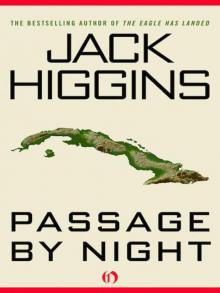 Passage by Night (v5)
Passage by Night (v5)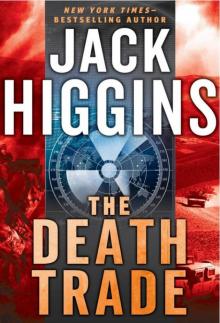 The Death Trade sd-20
The Death Trade sd-20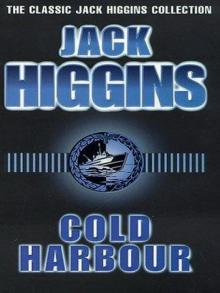 Cold Harbour
Cold Harbour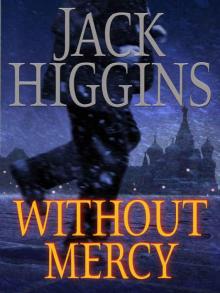 Without Mercy
Without Mercy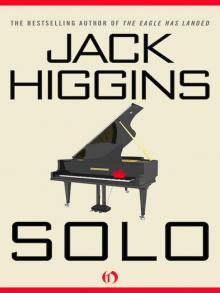 Solo (Aka the Cretan Lover)(1980)
Solo (Aka the Cretan Lover)(1980)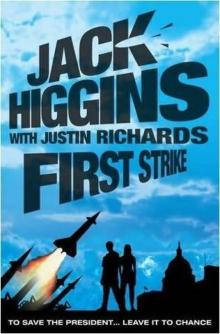 First Strike
First Strike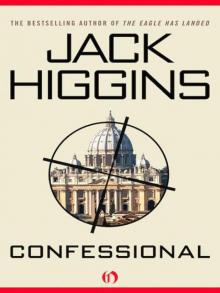 Confessional - Devlin 03 (v5)
Confessional - Devlin 03 (v5)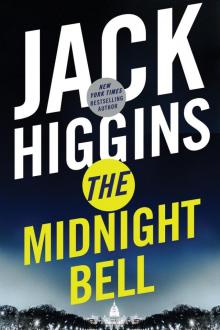 The Midnight Bell
The Midnight Bell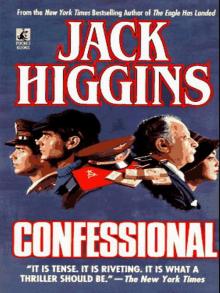 Confessional
Confessional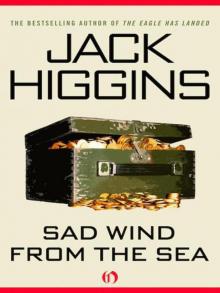 Sad Wind from the Sea (v5)
Sad Wind from the Sea (v5)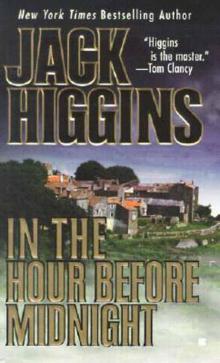 In The Hour Before Midnight aka The Sicilian Heritage
In The Hour Before Midnight aka The Sicilian Heritage Wrath of the Lion
Wrath of the Lion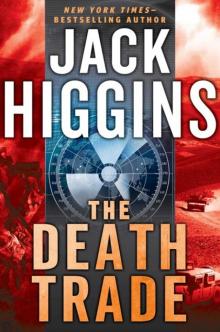 SDillon 20 - The Death Trade
SDillon 20 - The Death Trade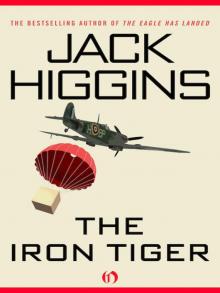 the Iron Tiger (1974)
the Iron Tiger (1974)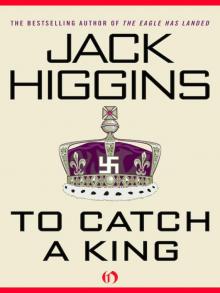 To Catch a King
To Catch a King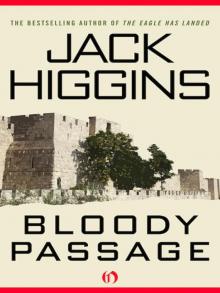 Bloody Passage (1999)
Bloody Passage (1999)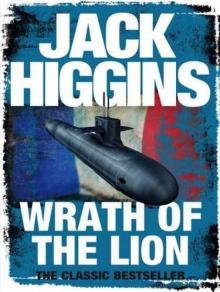 Wrath of the Lion sd-8
Wrath of the Lion sd-8 Sharp Shot
Sharp Shot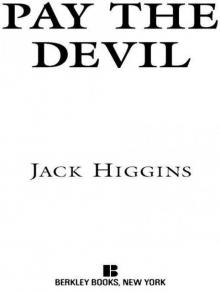 Pay the Devil (v5)
Pay the Devil (v5) A Devil Is Waiting
A Devil Is Waiting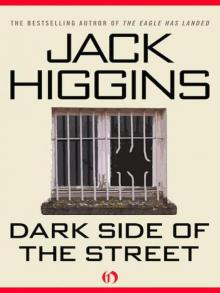 Dark Side of the Street - Simon Vaughn 01 (v5)
Dark Side of the Street - Simon Vaughn 01 (v5)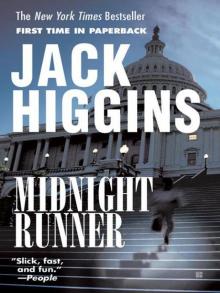 Midnight Runner - Sean Dillon 10
Midnight Runner - Sean Dillon 10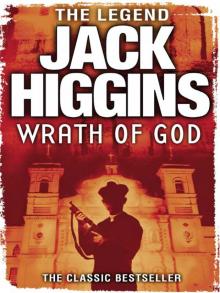 Wrath of God
Wrath of God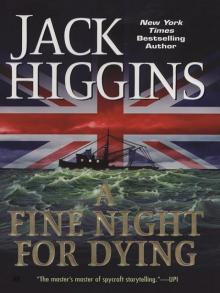 A Fine Night for Dying
A Fine Night for Dying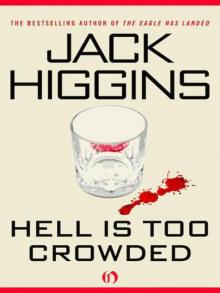 Hell Is Too Crowded v5)
Hell Is Too Crowded v5)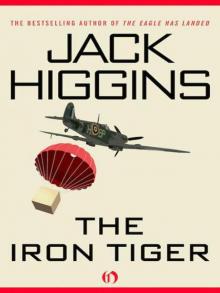 the Iron Tiger (v5)
the Iron Tiger (v5)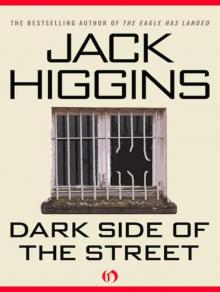 Dark Side of the Street pc-5
Dark Side of the Street pc-5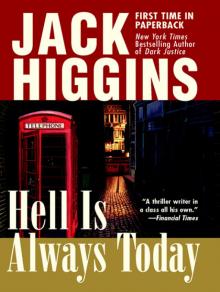 Hell Is Always Today
Hell Is Always Today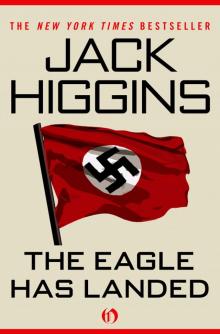 Eagle Has Landed
Eagle Has Landed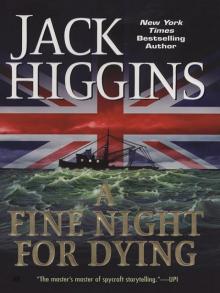 A Fine Night for Dying pc-6
A Fine Night for Dying pc-6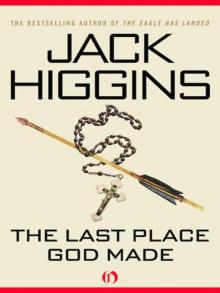 the Last Place God Made (v5)
the Last Place God Made (v5)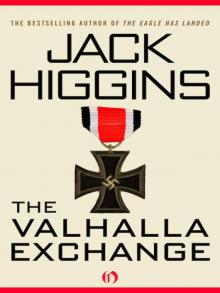 the Valhalla Exchange (1976)
the Valhalla Exchange (1976)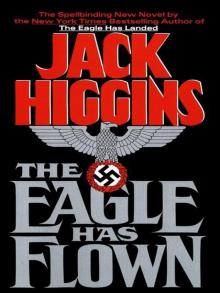 The Eagle Has Flown
The Eagle Has Flown Sure Fire
Sure Fire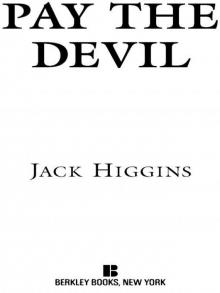 Pay the Devil (1999)
Pay the Devil (1999)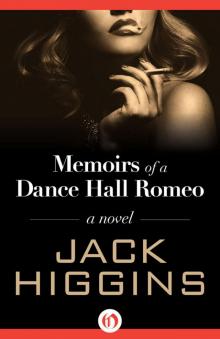 Memoirs of a Dance Hall Romeo
Memoirs of a Dance Hall Romeo![a Prayer for the Dying (1974)[1] Read online](http://i1.bookreadfree.com/i1/04/02/a_prayer_for_the_dying_19741_preview.jpg) a Prayer for the Dying (1974)[1]
a Prayer for the Dying (1974)[1]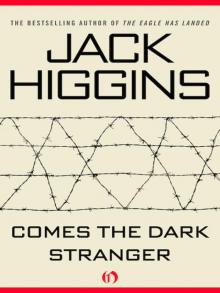 Comes the Dark Stranger
Comes the Dark Stranger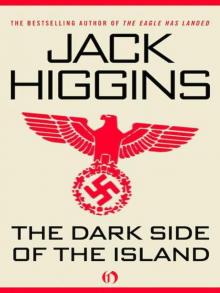 Dark Side Of the Island (v5)
Dark Side Of the Island (v5)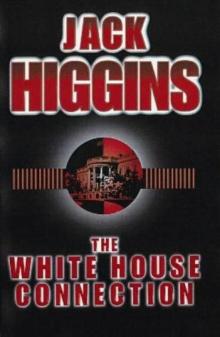 The White House Connection sd-7
The White House Connection sd-7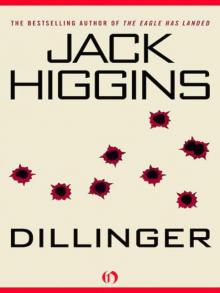 Dillinger (v5)
Dillinger (v5) Eye of the Storm
Eye of the Storm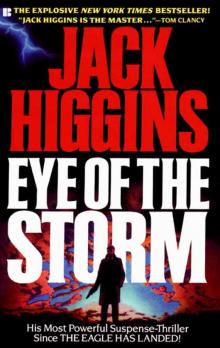 Eye Of The Storm aka Midnight Man
Eye Of The Storm aka Midnight Man A Darker Place
A Darker Place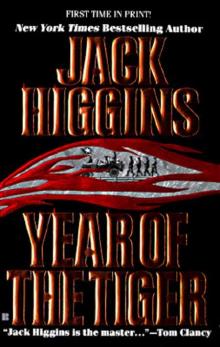 Year Of The Tiger
Year Of The Tiger Death Run
Death Run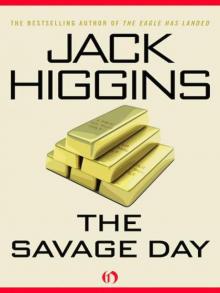 the Savage Day - Simon Vaughn 02 (v5)
the Savage Day - Simon Vaughn 02 (v5)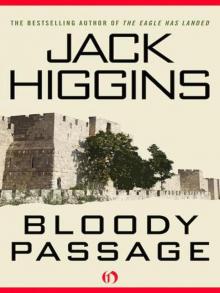 Bloody Passage (v5)
Bloody Passage (v5)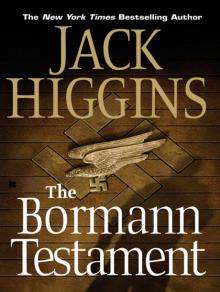 The Bormann Testament
The Bormann Testament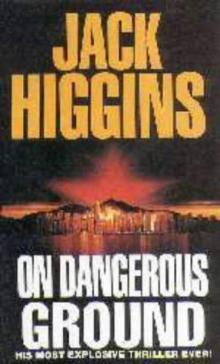 On dangerous ground sd-3
On dangerous ground sd-3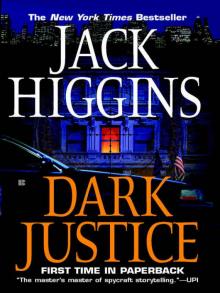 Dark Justice
Dark Justice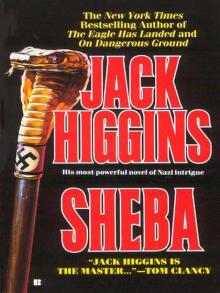 Sheba
Sheba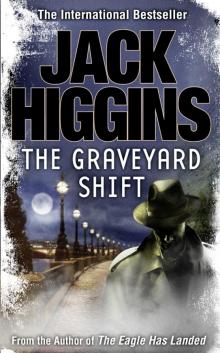 The Graveyard Shift
The Graveyard Shift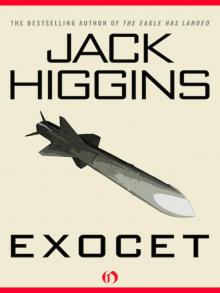 Exocet (1983)
Exocet (1983)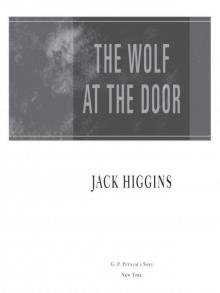 The Wolf at the Door
The Wolf at the Door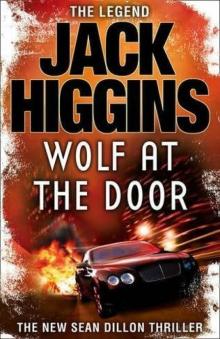 The wolf at the door sd-17
The wolf at the door sd-17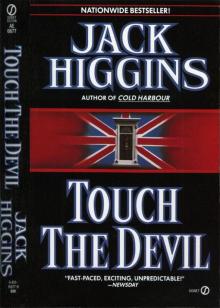 Touch The Devil
Touch The Devil The President’s Daughter
The President’s Daughter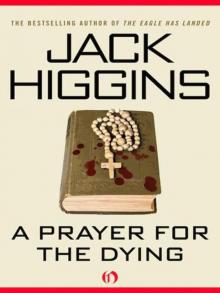 A Prayer for the Dying (v5)
A Prayer for the Dying (v5)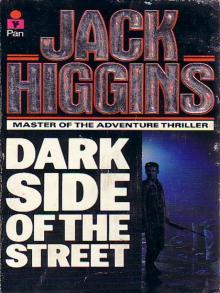 Dark Side Of The Street
Dark Side Of The Street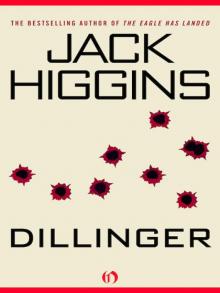 Dillinger (1983)
Dillinger (1983)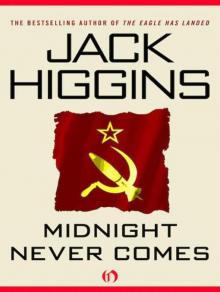 Midnight Never Comes pc-4
Midnight Never Comes pc-4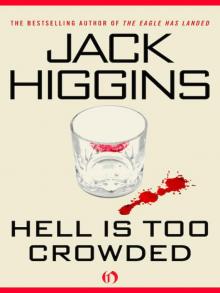 Hell Is Too Crowded (1991)
Hell Is Too Crowded (1991)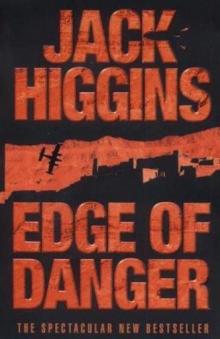 Edge of Danger sd-9
Edge of Danger sd-9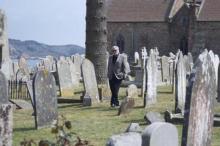 The Thousand Faces of Night (v5)
The Thousand Faces of Night (v5)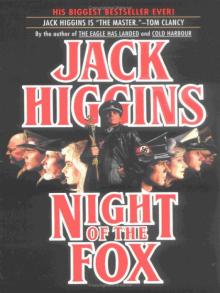 Night Of The Fox
Night Of The Fox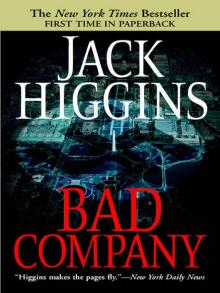 Bad Company
Bad Company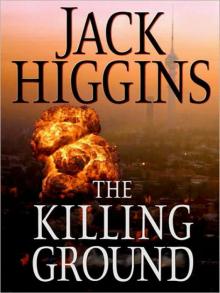 The Killing Ground
The Killing Ground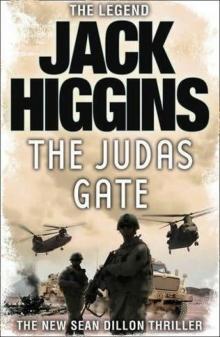 The Judas gate sd-18
The Judas gate sd-18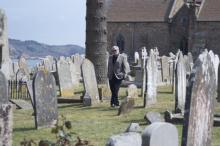 The Thousand Faces of Night (1961)
The Thousand Faces of Night (1961)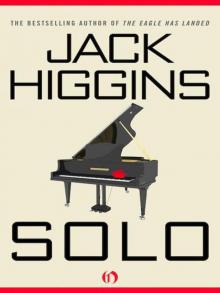 Solo (Aka the Cretan Lover) (v5)
Solo (Aka the Cretan Lover) (v5)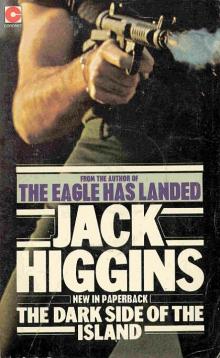 The Dark Side Of The Island
The Dark Side Of The Island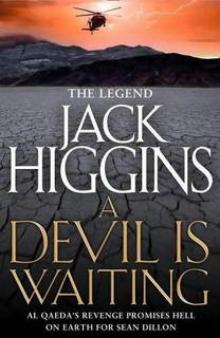 A Devil is vaiting sd-19
A Devil is vaiting sd-19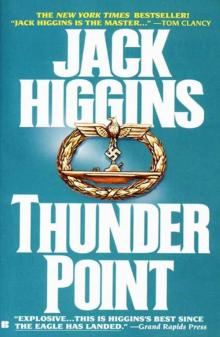 Thunder Point
Thunder Point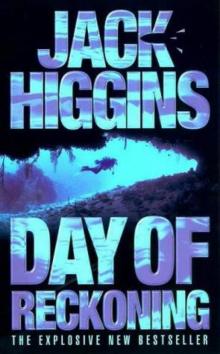 Day of Reckoning sd-8
Day of Reckoning sd-8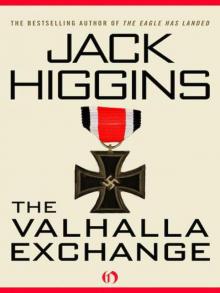 the Valhalla Exchange (v5)
the Valhalla Exchange (v5)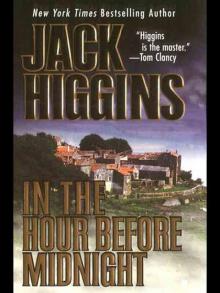 In the Hour Before Midnight
In the Hour Before Midnight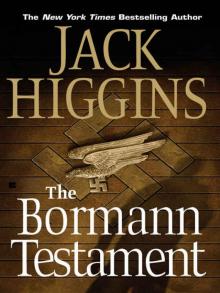 The Bormann Testament (The Testament of Caspar Schultz)
The Bormann Testament (The Testament of Caspar Schultz) The Judas Gate
The Judas Gate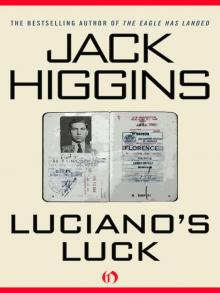 Luciano's Luck
Luciano's Luck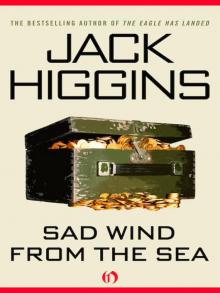 Sad Wind from the Sea (1959)
Sad Wind from the Sea (1959)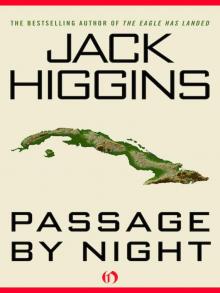 Passage by Night (1987)
Passage by Night (1987)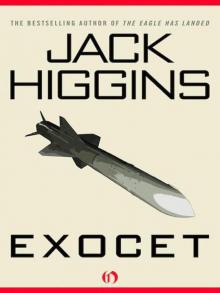 Exocet (v5)
Exocet (v5)